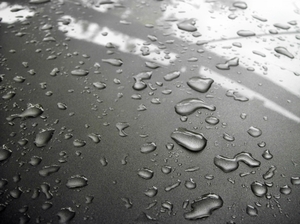Prior to 2010, the burden of proof for plaintiffs in slip-and-fall lawsuits in Florida was much lower. One needed to prove only the plaintiff encountered a slippery foreign substance on the ground, fell as a result and suffered injury.

However, the new statute placed a greater responsibility on the injured person to prove the business knew or should have known about the existence of the substance that proximately caused the fall, and also that the business failed to clean it up.
This has meant slip-and-fall accident claimants have a higher hurdle to overcome in proving their case. However, Florida’s First District Court of Appeal recently ruled in Glaze v. Chick-Fil-A et al. the new statute, F.S. 768.0755, can’t be applied retroactively. That means the old law, F.S. 768.0710, is the applicable law.
Because trial court in this slip-and-fall case applied the newer law, despite the facts giving rise to this case occurring in 2005, appellate court reversed the earlier grant of summary judgment favoring defendant.
According to court records, plaintiff alleges her minor son slipped and fell on a foreign substance (water) while walking to the restroom through a common area adjoining a mall to the restaurant. (Mall was also named as defendant.) The boy’s sister was present at the time of the fall.
The pair stated they were in the common area walking to the restroom when the sister noticed a man in a wheelchair and warned her brother to step out of the way. As he did so, he slipped on the water, his feet went out from beneath him. He fell hard on his hip and struck his head on a door jam. Neither noticed a puddle before the child fell. The children described the puddle as being about two feet in length.
It appeared the water had originated from a staff-only doorway.
Plaintiff alleges restaurant negligently maintained the floor by allowing the foreign substance to remain on the floor, which presented a hazardous condition, and further the restaurant had a duty to maintain the common areas in safe condition for customers. She also alleged restaurant knew or should have known about the substance because it was foreseeable water would end up on the floor, and further, the condition had existed for a substantial length of time.
In its defense, restaurant argued it was not negligent and had no duty to maintain common areas. Defendant did not present any evidence contradicting plaintiff’s assertion that water originated from behind its service door.
However, the court granted summary judgment on grounds plaintiff failed to show defendant knew or should have known the substance existed and failed in its duty to clean it up.
On appeal, plaintiff argued trial court applied the wrong legal standard – the new statute, versus the old one.
Appellate court agreed.
While noting one other district (Third in Kenz v. Miami-Dade County) held the statute should be applied retroactively, the First District sided with the Fourth in finding the law should not be applied retroactively.
Given this conflict, it’s likely the Florida Supreme Court will be called upon to consider this issue sometime soon.
Call Fort Lauderdale Injury Attorney Richard Ansara at (954) 761-4011. Serving Broward, Miami-Dade and Palm Beach counties.
Additional Resources:
Glaze v. Chick-Fil-A et al., March 3, 2015, Florida First District Court of Appeal
More Blog Entries:
Star Indemnity v. Morris – Boating Injury Prompts Nonjoinder Insurance Dispute, Jan. 8, 2015, South Florida Slip-and-Fall Accident Lawyer Blog
 Broward Injury Lawyer Blog
Broward Injury Lawyer Blog



